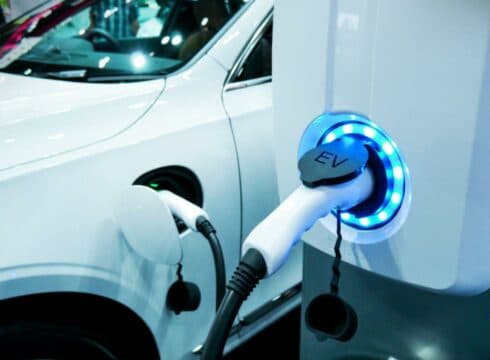Currently, the government levies a 5% goods and services tax (GST) on new EVs while old and used EVs are taxed at 12%
However, the fitment commitment has recommended that the government consider a higher 18% tax rate on old and used EVs
This comes at a time when the sale of new EVs is on the rise in India but used EVs, including scooters, cars and commercial vehicles are facing low sales and sluggish demand in the resale market
Inc42 Daily Brief
Stay Ahead With Daily News & Analysis on India’s Tech & Startup Economy
The GST Council, chaired by finance minister Nirmala Sitharaman and comprising state ministers, is likely to discuss a proposal to increase taxes on old and used electric vehicles to 18% from the present 12%, as per CNBC-TV18’s report.
Currently, the government levies a 5% goods and services tax (GST) on new EVs while old and used EVs are taxed at 12%.
However, the fitment commitment has recommended that the government consider a higher 18% tax rate on old and used EVs.
The GST Council is set to convene a meeting on December 20-21 in Rajasthan’s Jaisalmer, where it will likely discuss the committee’s proposal on hiking taxes on old and used EVs, as well as smaller diesel and petrol cars.
The move is aimed at bringing old and used EVs, as well as small cars powered by fossil fuels, in line with larger cars and SUVs, which are currently taxed at 18%, as per the report.
This comes at a time when the sale of new EVs is on the rise in India, but used EVs — from scooters to cars to commercial vehicles — are facing low sales and sluggish demand in the resale market. Old and used EVs are often sold at a price discount to similar-sized fossil fuel-powered vehicles in the second-hand market, according to industry reports.
One of the key reasons why used EVs have failed to take off in the second-hand market is due to concerns around the battery life.
Last month, Tarun Kapoor, advisor to Prime Minister Narendra Modi, called for lowering the GST on EV batteries and charging infrastructure to increase EV penetration in the country.
In September, the Global Trade Research Initiative said that under the production linked incentive scheme, the government should prioritise manufacturing of EV cells, or lithium-ion cells instead of batteries as most of the manufacturing and value addition occurs up to the cell-making stage.
To its credit, the Centre is actively pushing to fuel the growth of the homegrown EV ecosystem with sops and incentives such as production-linked-incentives (PLIs) and the INR 10,090 Cr PM Electric Drive Revolution in Innovative Vehicle Enhancement (PM E-DRIVE) scheme.
As per an Inc42 report, the homegrown EV space is projected to become a $110.74 Bn market by 2029.
{{#name}}{{name}}{{/name}}{{^name}}-{{/name}}
{{#description}}{{description}}...{{/description}}{{^description}}-{{/description}}
Note: We at Inc42 take our ethics very seriously. More information about it can be found here.


